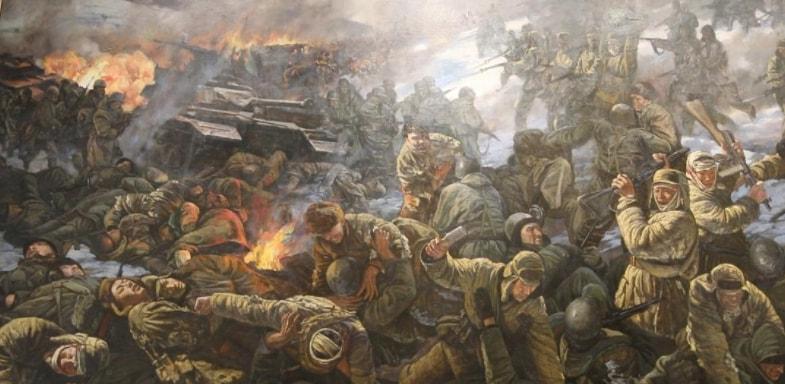Some experts said that after the second blow-up of the Watergate Bridge, the volunteer army was exhausted and could only watch the US First Marine Division flee south. But that's not the case, but let's look at what the Americans say.
In his book "The Korean War, the Untold Truth", the American intelligence Guan Gulden also told the history of the Battle of Watergate Bridge: the Volunteer Army did blow up the bridge twice, and the American engineers did repair it twice. This extremely rapid speed of repair has taught the world a harsh lesson, but at the same time, the fighting spirit of Chinese soldiers has also changed the color of Americans for decades to come.
"The Korean War, The Untold Truth" records the memories of Lieutenant Colonel Carlo, the commander of the artillery battalion: I felt this battle very strongly, and many good comrades were sacrificed. I have never encountered such a brutal battle. The worst battle I encountered during World War II was the final German counterattack, but it was also completely different from the Battle of Chosin Lake, and I dare not recall the scene.
On 29 November, we realized that the Volunteers had no chance of victory and that the 1st Marine Division was about to escape and ascend to heaven. But we were all wrong. On the 1081 high ground alone, the Chinese soldiers used two platoons to block the attack, the fighters fought desperately for nine hours to break through the position, the defenders were all killed, and no one surrendered.
To the south of the Shuimen Bridge was a company of Chinese troops, where the First Marine Division was their greatest threat. But when the officers and soldiers crossed the Watergate Bridge, they found that the soldiers had been frozen. The soldiers were too late to rejoice, because there were still Chinese troops chasing after them, and they were frantically rushing into the battlefield.
What kind of spirit is this? In front of the First Marine Division were the remnants of the Chinese soldiers who had just blown up the Watergate Bridge, as well as the Chinese pursuers who had just pursued. They showed a high sense of combat. Soldiers clearly saw that even if their toes were frozen, even if their legs had been broken, they were still shouting and charging forward.
A marine told me that we are not afraid of the able-bodied volunteer soldiers, we are afraid of the Chinese soldiers who are limping and carrying grenades. They have already made up their minds to die, and such people are the most terrible. It took us a long time to kill the bloody road after heavy casualties, and finally found that only one or two Chinese soldiers were blocking us who were about to freeze.
We have never encountered such an enemy. What kind of fighting spirit is this? Even if there was only one of them left, they would shoot at us, and there were too many such soldiers along the way. Fortunately, on December 2, the 1st Marine Division finally broke through the siege with the 3rd Infantry Division. No one wants to look back on these days, and it was a purgatory experience for the Marines.
I checked the statistics of the First Marine Division, which had 24,000 officers and men before the battle, and the total number of attritions after the battle was 11,731, accounting for 40 percent of the total strength of the division.
My good friend, Colonel Alpha of the Operations Division, told me: Fortunately Chinese didn't have the logistical resources and communications equipment like ours, or we would all die there. Whenever I see Colonel Alpha's palpitating eyes, I wonder: What kind of unit is this, and why is it dealing us with such a devastating blow?
Goulden, an intelligence officer, has been trying to find the root cause of the Chinese army's formidable combat effectiveness. But judging by the accounts in his book, he never understood why the Chinese military was so powerful.
We say that knowing oneself knows one's enemy and wins every battle. Although Goulden did not understand the truth about the Victory of the Chinese Army, he knew the American Army very well, and the book told a lot of the inside story of the United States in the Korean War.
